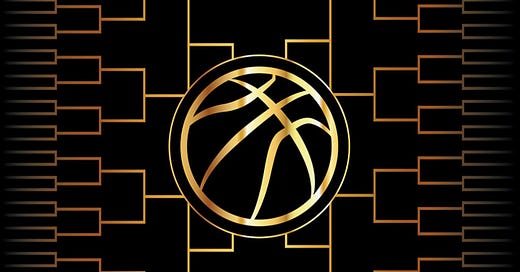Like many this time of year, I just filled out my NCAA brackets with completely uneducated guesses as to who will make the Final Four. When I say “uneducated,” I’m not kidding: though well-versed in the fundamentals of basketball, I haven’t watched a game all season.
I do this every March—make decisions based on personal impressions (and little else) of the names (not the teams) of the schools playing—with the ridiculous but enduring hope that this will be the year when the planets align, and I somehow correctly pick the winners of every single contest in the 64-team tournament.
It could happen, you know. It really could. But that’s not my point.
Slate just did a short but interesting piece on The Enlightened Bracketologist: The Final Four of Everything, a book essentially being marketed as a new way to look at life:
"Bracketology—the practice of parsing people, places, and things into discrete one-on-one matchups to determine which of the two is superior or preferable—works because it is simple. It is a system that helps us make clearer and cleaner decisions about what is good, better, best in our world. What could be simpler than breaking down a choice into either/or, black or white, this one or that one?"
I'm not sure there's a better modern-day example of postmodernism. Whether it involves determining one's tournament winner, favorite movie, or most memorable historic event, the idea of continuously picking between two different choices right in front of you in search of which is better—all with little consideration of contextual reality, background story, or overarching meta-narrative or biblical truth—this is postmodernism.
Who knew March Madness could teach us so much?




